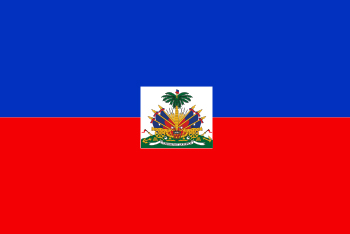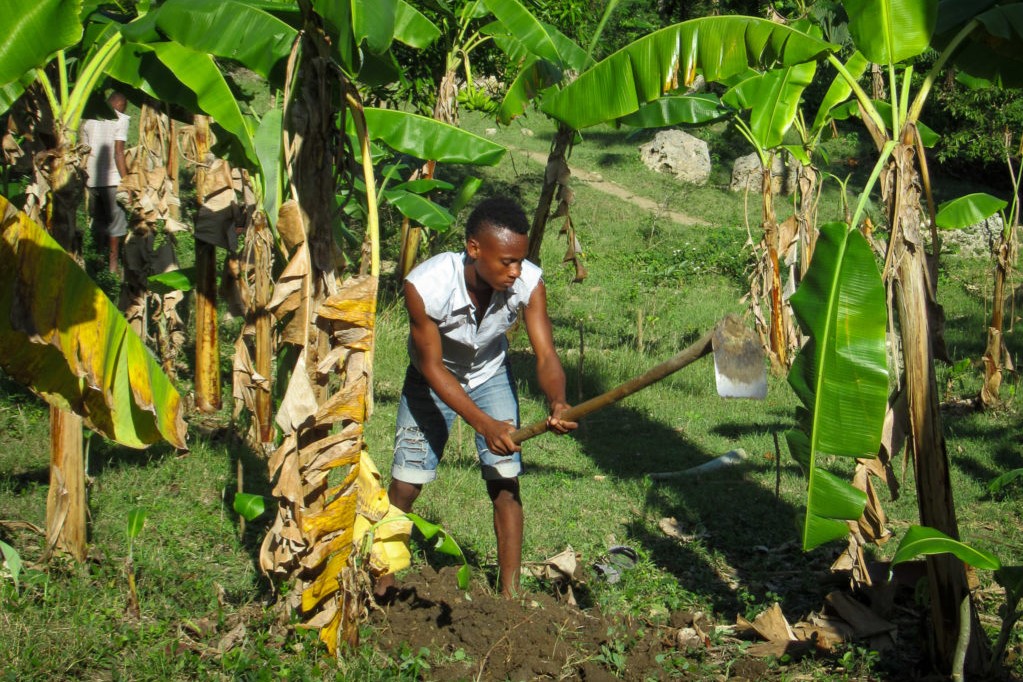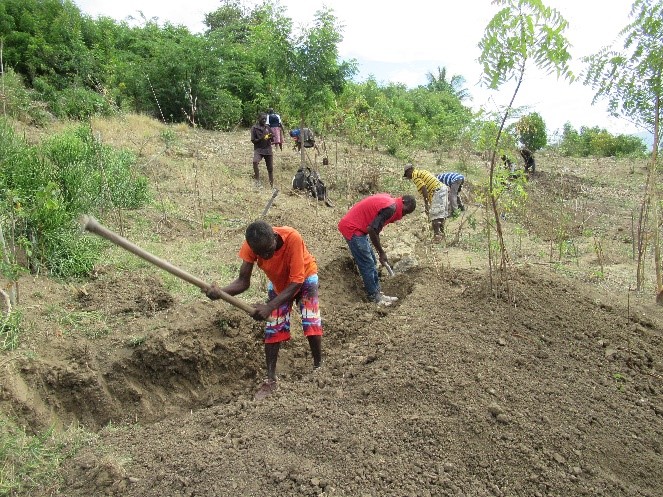 Haiti Jean Rabel
Haiti Jean Rabel
$82,343 needed of $94,168

Implementing Organization
Church World Service (CWS)
Program Summary
This program aims to strengthen the resilience of rural communities in the Northwest region of Haiti. Church World Service and local partner, Association des Groupes Evangéliques d’Haïti pour la Prédication du Monde et le Développement d’une Nouvelle Génération (AGEHPMDNG), are working to assist farmers in Jean Rabel to face challenges related to food security in the middle of a socio-political crisis and context of insecurity, high rates of malnutrition, rural exodus, vulnerability to natural disasters, and poverty.
Program objectives are focused on protecting land against the risk of erosion and flooding, using techniques to become less vulnerable to the consequences of disasters and increase their agricultural production, and diversifying income-generating opportunities through training and access to microcredit.
Success Stories

Communities Come Together for Soil Conservation
Elina is a beneficiary of a massive community soil conservation effort that resulted in 50 miles of contour canals dug and 20 miles of rock walls built on a total of 370 acres.
Soil erosion is a serious problem in Haiti, so local partner AGEHPMDNG is helping farmers fortify their land. Techniques include building or digging structures to encourage water retention and stop the rapid flow of water downhill. Contour canals are dug into the earth in areas with few rocks, and rock walls were built in areas where there are many.
“I would not otherwise have been able to afford to pay laborers to do this work on my farm,” said Elina, “but, thanks to this program, my land is protected against the force of rushing water.”
The landowners were selected based on their request to AGEHPMDNG; visits to evaluate their land; acceptance of conditions; and past participation in soil conservation work of this kind. They participated in clearing the land, digging, building, and providing drinking water for the workers. Some passed out bread, and sugar to mix into the water. Thirty agronomy students participated, and the work also attracted volunteers and other farmers interested in requesting help on their land.
Three-hundred men and women completed this feat over two 12-day periods on land owned by 38 farmers (12 women, 26 men). The laborers worked for pay for 10 days and contributed two days of their labor for the good of the community. Workers had to be able and willing to work, live in the community, and be a member of AGEHPMDNG or one of four other community-based organizations.
The pay was a welcome improvement to the finances of the laborers, with some using the money to pay debts or university fees. Farmers who had benefited from this kind of community project in the past were able to attest to increased yields thanks to the soil conservation efforts.
Elina says that, now that her land is protected in this way, “I believe I can also expect an increase in my yields in the future.”
Haiti Jean Rabel Program
Led by Church World Service and Local Partner AGEHPMDNG
